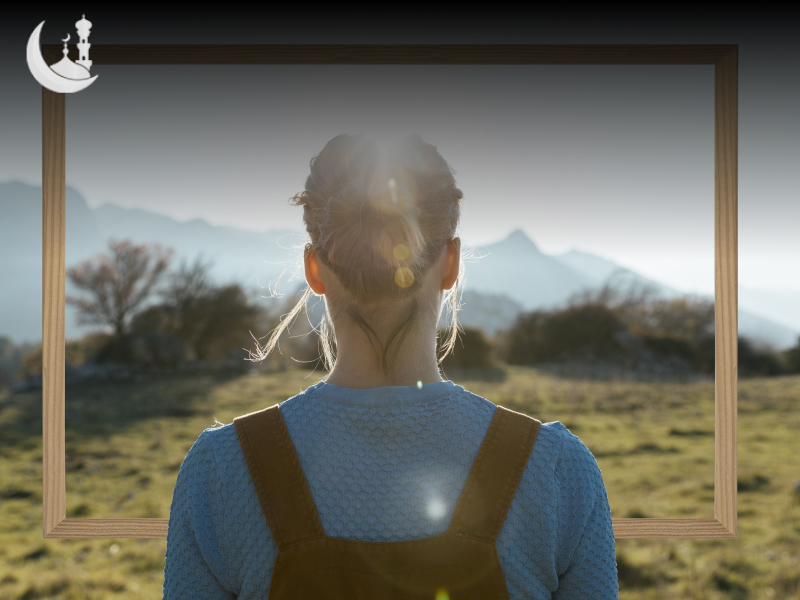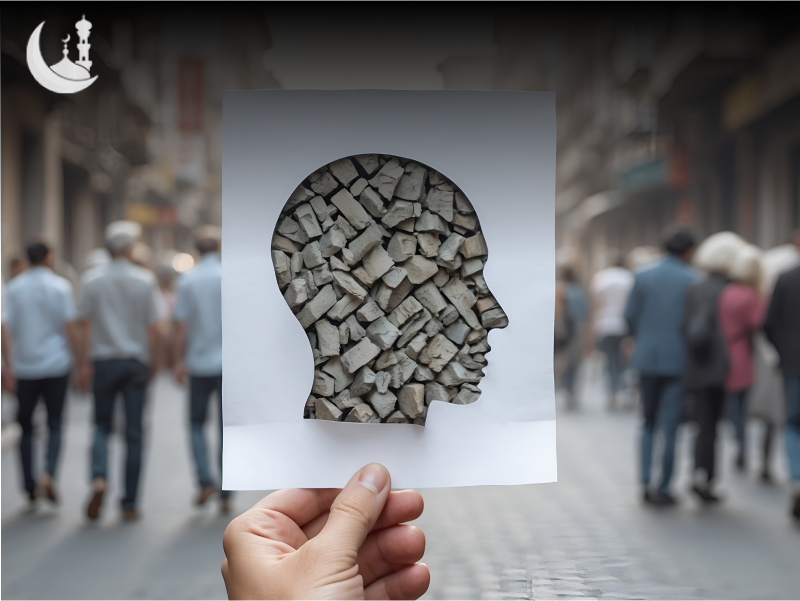In the middle of all the demands on your time and energy, you really start to wonder if something is wrong with you. You ask yourself, “Why am I not myself?” Those feelings can be pretty difficult to address and work through because they cause so much confusion and anxiety, leaving you disconnected from who you are. It provides such deep study into concepts of identity and self, which quite naturally heightens aspects of mental health, self–discovery, and personal space.
In Marrkazul Irrshaad wa Tawjeeh, we see that those aspects are part of a living, real life of value and contentment.
The Nature of Identity
Identity is a very complex and multi-dimensional variable. It encompasses the entire cultural background, personal experience, etc. It always emphasizes our beliefs, values, and roles in society. It creates an unsettling feeling when somehow the sense of who we are undergoes a change. This process can be caused by various effects, such as:

- Changes in Life: Most of life’s outstanding changes, like shifting to a new city, a new job, or a new phase of life, mark us decisively as part of our personality. Often such changes make us think over and over who we are and what we stand for.
- Emotional Disorders: In short, it is as if we are living with depression, anxiety, and post-traumatic stress, drawing a blur for the eye of a person as to who he or she is. The feeling of inferiority or confusion about one’s identity ensues when one’s mental health is undermined.
3. Social Influences: In a super-connected world, social media is just a weapon for the fight for what disconnection craves. The constant being presented with pressure just makes one need to be authentic in life. We thus become alienated from ourselves. - Cultural Expectations: Demands and pressures from culture and society at times turn around as restrictions. This again raises the question of inner conflict, as we tend to run on ropes that we may not find within ourselves—a great inner conflict.
Role of Self-Discovery
Self-discovery is that part of understanding that may enlighten the varied aspects of our identity. Self-discovery involves knowing what a person’s values, beliefs, passions, or fears are. Such self-discovery may bridge the gap between the way we perceive ourselves and who we actually are at heart. These are some ways one may establish self-discovery.

- Reflective Practice Journaling, meditation, or mindfulness may eventually be a vehicle by which we will connect with our thoughts and emotions. These practices pave the way and open up space for reflection within an individual to untangle complicated emotions and gain clarity regarding identity.
- Be a friend to the world around you: Sometimes, you have to step out of your shell into something even more emotional or mental in order to find other new things about yourself. Traveling, learning, and other things can make you encounter some things about yourself. The same is true for showing creativity in the field of artistic activities, such as art, music, dance, writing, and observation.
- Belonging: You can then claim possession of that world of other people by creating authentic relationships established amongst other human beings. You begin seeking deep ideas with friends, mentors, or even therapists regarding how you feel about yourself and your place in the world.
- To Be Vulnerable: The more open that we are in speaking from our hearts and exposing vulnerabilities and hardships, the sooner we come to a potential agent of change. As byproducts of the avenues of deeper connections with others and recapturing parts of the self that were locked away or stifled.
Space: Why do we need it?
There must be a personal space of physical and emotional aspects so that someone can hold onto his balanced self. Personal space recharges the balloon that someone calls oneself for further reflection on who is behind those thoughts and feelings and untangles the identity very personally. Making personal space is done in the following ways:
- Boundaries Creation: To create boundaries, one needs to learn how to say “no.” This is safety, or learning how to say “no” tactfully but firmly in order to hold the safety from other people’s time and energy. Then, refuge can be created once an individual masters how to say “no” to have refuge from people’s harassment through possessing personal space.
- Digital Detox: De-socialization could purify our minds from the mentality of inadequacies. What digital detox does to our minds is without the straitjacket of comparisons that we formulate out of the virtual world.
- Often, in a nurturing environment, a person needs to spend time away from people and feel comfort in himself. Of course, the environment the person keeps himself in can really affect his mental state. For a small personal space, it can be a comfortable nook at home or a favorite outdoor spot.
- Mindfulness Practices: This practice may inspire mindful activities that help us become conscious of the moment. It may only re-establish ourselves to feelings and thoughts in which we can even begin to gain a deeper insight into who we are.
Mental Health and Identity
However, mental illness plays a very important role in our sense of self. When people have a mental illness, this distorts the self and turns that person into someone “not themselves.” It is here that mental health and the concept of self overlap.

- Self-Hating People with mental illnesses, for example, hate themselves and have a great urge to fight against them, which mostly ends with them hating themselves or becoming worthless. There is much about knowing the tendencies that lead us to a way of regaining our self-concept.
- Counseling: counseling is a haven that determines who you are and for mental health issues. A counselor will be in a position to help us untangle ourselves from unclear feelings and may be in a position to guide us in the right direction toward a better self.
- Resilience Increases: Coping skills improve mental strength as well as self-esteem. For example, during CBT, you learn how to displace a bad thought pattern with an attitude to look at a positive way of perceiving oneself.
Best Version of Yourself
Finally, it is something very personal to oneself to come to know why one does not feel like one is himself/herself. It asks for one’s efforts and understanding of nature with oneself, above all self-respect. According to the words of the author Marrkazul Irrshaad wa Tawjeeh, “Accept to be yourself.” Here are some final words by the writer for this journey:
Embrace individuality
No one travels the same path. Enjoy the characteristics that surround you that make, you, and embrace the weirdness and your unique traits.
Be kind to yourself
You are going to break and trip, and it is okay to be gentle with yourself during this journey. It is part of the natural human experience wherein you will see yourself in different ways.
Consistency with Change
One way is that the identity is moving and has been changing over time. It’s a constant flow, as at every step, one would be embracing everything that life has in store.
Having Help
You do not need to go through it alone. Surround yourself with inspiration from everyone around you as well. Serving in the path of people so that discovery of their identity or perception of themselves may take place—this has been the commitment at Marrkazul Irrshaad wa Tawjeeh.
Read Also: Understanding Traumatic Invalidation: Its Impact on Mental Health
The Bottom Line
Feeling cut off from oneself is agony and disorienting. This is the space, through self-discovery, space and mental health effort, where a gulf can be bridged between how we feel and who we really are. It’s the better realization of those complexities that builds us up in self-confidence but enables us to become our authentic selves, thus leading on towards better, more fulfilling lives.






